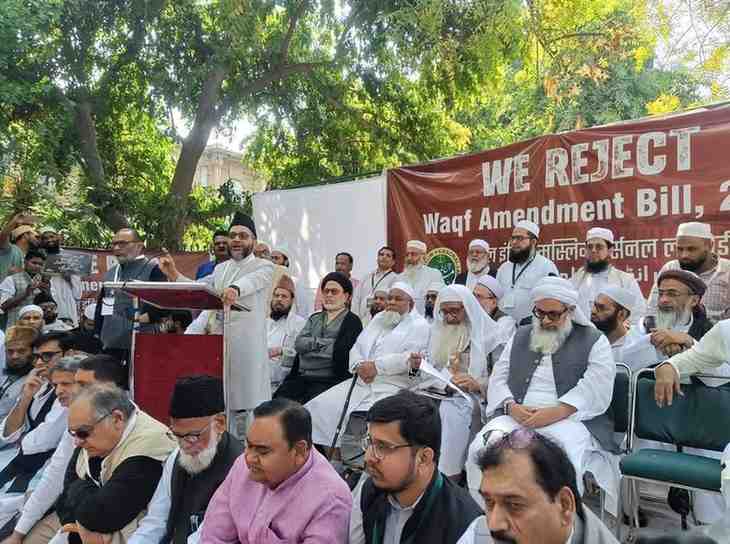What is the Waqf Bill 2024?

In August 2024, India’s Parliament witnessed the introduction of a highly debated piece of legislation: the Waqf (Amendment) Bill, 2024. Tabled in the Lok Sabha on August 8 by Union Minority Affairs Minister Kiren Rijiju, this bill seeks to amend the existing Waqf Act of 1995, which governs the administration of Waqf properties across the country. Alongside it, the Mussalman Wakf (Repeal) Bill, 2024, was introduced to repeal an older law from 1923. Together, these bills aim to reshape how Waqf—an Islamic tradition of dedicating property for religious, charitable, or community purposes—is managed in India. But what exactly is the Waqf Bill 2024, and why has it stirred such a nationwide conversation?
The Roots of Waqf and Its Governance
To understand the Waqf Bill 2024, we first need to grasp what “Waqf” means. Derived from Arabic, Waqf refers to the permanent dedication of movable or immovable property—like land, buildings, or even money—by a person for purposes recognized as pious, religious, or charitable under Muslim law. Think of it as a form of endowment where, once declared, the property is considered to belong to God, its benefits directed toward mosques, schools, hospitals, or helping the needy. In India, this practice has deep historical roots, evolving through various legal frameworks, with the Waqf Act of 1995 serving as the current backbone.
The 1995 Act established State Waqf Boards to oversee these properties, mandated surveys to identify them, and set up Waqf Tribunals to settle disputes. Today, India has an estimated 8.7 lakh registered Waqf properties, making it one of the largest holders of such endowments globally. However, challenges like encroachments, mismanagement, and legal disputes have long plagued the system, prompting calls for reform.
What Does the Waqf Bill 2024 Propose?
The Waqf (Amendment) Bill, 2024, introduces around 40 changes to the 1995 Act, aiming to address these issues and modernize Waqf management. Officially renamed the “Unified Waqf Management, Empowerment, Efficiency, and Development Act, 1995” (UMEED), the bill reflects the government’s stated goal of enhancing transparency and efficiency. Here are some of its key proposals:
- Tighter Rules for Creating Waqf: The bill specifies that only someone who has practiced Islam for at least five years and owns the property can declare it as Waqf. This aims to prevent disputes over ownership but has raised questions about its practicality and intent.
- Increased Government Oversight: District Collectors, rather than Waqf Tribunals, would now arbitrate disputes over whether a property is Waqf or government-owned. The bill also states that government properties mistakenly identified as Waqf in the past won’t be recognized as such until a Collector’s inquiry confirms otherwise.
- End of “Waqf by Use”: Historically, properties used long-term for religious purposes—like graveyards or mosques—could be deemed Waqf even without formal documentation. The 2024 bill removes this provision, requiring a valid deed (waqfnama) for recognition.
- Diverse Representation: The bill mandates that State Waqf Boards and the Central Waqf Council include non-Muslim members and at least two women, a shift from the current all-Muslim composition. It also allows appeals against Tribunal decisions to High Courts, diluting the Tribunals’ final authority.
- Digital Push: The legislation emphasizes digitizing Waqf records within six months, building on earlier efforts to computerize data and reduce mismanagement.
These changes, the government argues, will streamline administration, curb encroachments, and ensure Waqf properties serve their intended purpose more effectively.
Why the Controversy?
The Waqf Bill 2024 hasn’t landed quietly. After its introduction, it was referred to a 31-member Joint Parliamentary Committee (JPC) for scrutiny, chaired by BJP MP Jagdambika Pal, due to fierce opposition. Critics, including opposition parties and Muslim organizations like the All India Muslim Personal Law Board (AIMPLB), see it as an overreach. They argue that it undermines the religious autonomy of the Muslim community, protected under Articles 25 and 26 of the Constitution, which guarantee freedom to manage religious affairs. The inclusion of non-Muslims in Waqf bodies and the shift of authority to District Collectors—typically revenue officials—fuel concerns about interference.
On the flip side, supporters, including some BJP leaders, hail it as a much-needed reform. They point to cases where Waqf Boards have claimed properties controversially, arguing that the bill’s provisions—like mandatory registration and Collector oversight—will bring clarity and protect public assets from misuse. They also highlight the potential benefits for marginalized Muslims, such as widows and orphans, through better-managed endowments.
The Bigger Picture
As of March 18, 2025, the bill remains under review, with the JPC gathering input from stakeholders nationwide. The debate has spilled beyond Parliament into protests—like the one at Jantar Mantar on March 17, 2025—and public campaigns, with millions voicing opinions online and via email submissions. Its timing during Ramadan 2025 has only heightened its emotional weight.
The Waqf Bill 2024 isn’t just about property law; it’s a flashpoint for larger questions about governance, religious rights, and community trust in India’s diverse democracy. Whether it passes as is, gets reworked, or fades away, its impact on how Waqf properties—and the people they serve—are managed will be felt for years to come. For now, it’s a story still unfolding, with India watching closely.
You Might Also Like:
Militant Killed, Policeman Injured in Handwara Encounter
J&K High Court Quashes PSA Detention of Advocate Nazir Ahmad Ronga
Japanese Adult Film Star Kae Asakura Converts to Islam After Trip to Malaysia
71-Year-Old Abdul Karim Found Dead with Gunshot in Reasi’s Tanda Area





